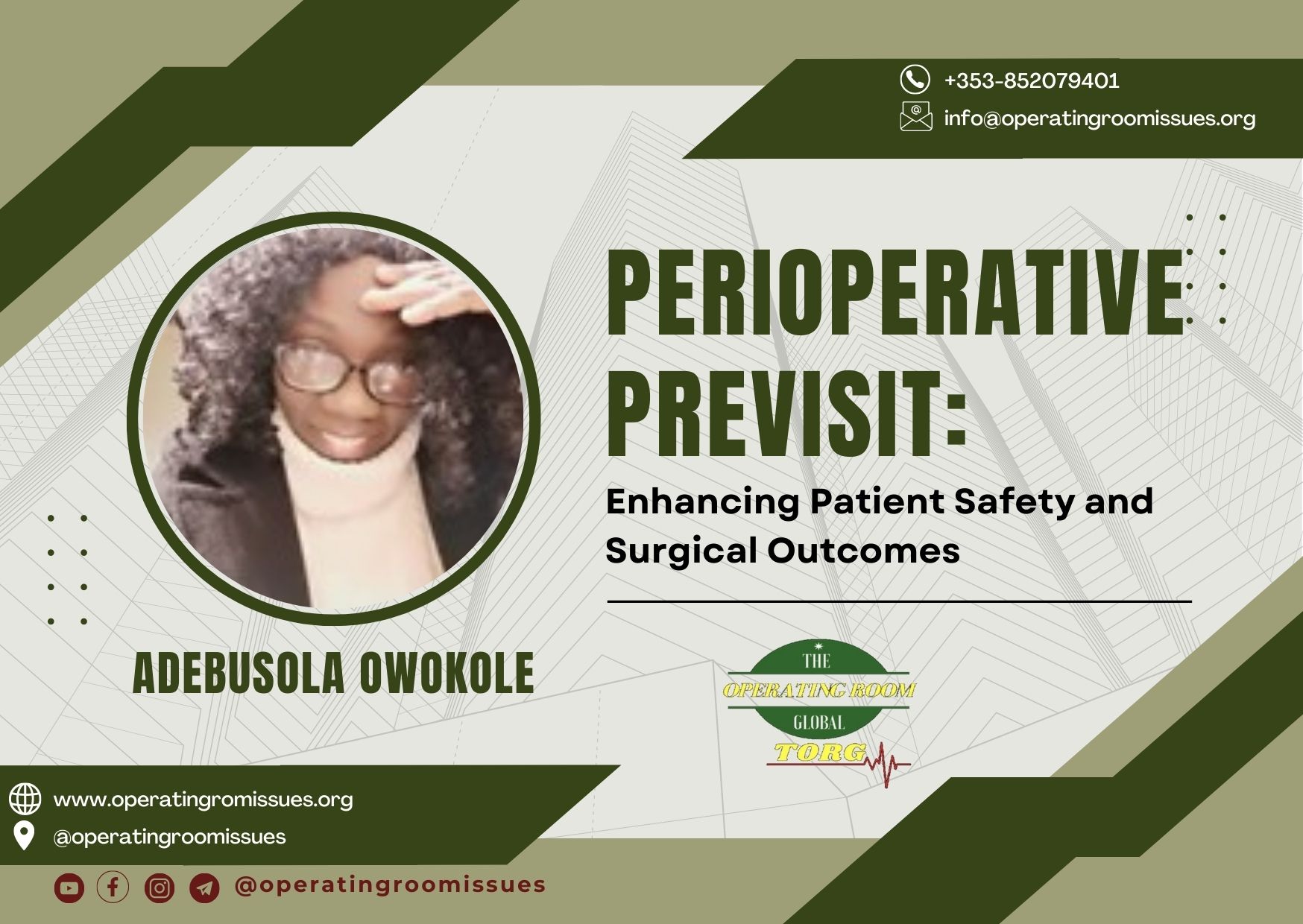By Adebusola Owokole (TORG Founder/President)
The perioperative period, encompassing the time before, during, and after surgery, is critical in-patient care. The preoperative visit plays a pivotal role in preparing patients for their surgical journey, ensuring optimal safety, and improving surgical outcomes. This article aims to explore the significance of perioperative previsits in enhancing patient safety and surgical outcomes.
Importance of Perioperative Previsits
Comprehensive Assessment: The previsit involves a detailed evaluation of the patient’s health status. Obtain a thorough medical history, including previous surgeries, allergies, chronic diseases, and current medications. Perform a physical examination to detect any undiagnosed conditions and assess vital signs.
Nutritional Optimization: Evaluate the patient’s nutritional status. Provide dietary counselling and nutritional supplementation if necessary to optimize the patient’s nutritional status before surgery, enhancing recovery and reducing complications.
Preoperative Testing: Order appropriate laboratory investigations and diagnostic imaging studies to identify any abnormalities that may require intervention or adjustment of perioperative management. This may include complete blood counts, coagulation profiles, metabolic panels, chest X-rays, or electrocardiograms.
Patient Education and Shared Decision-making
Communication: Clearly explain the surgical procedure, potential risks, benefits, and expected recovery process to the patient. Encourage questions and address concerns to ensure the patient is well-informed and actively engaged in their care.
Setting Realistic Expectations: Provide information on postoperative pain management strategies, physical therapy, and wound care techniques. Educate patients about the expected timeline for recovery and rehabilitation, empowering them to actively participate in their recovery process.
Coordination of Care and Multidisciplinary Approach
Collaborative Planning: Facilitate collaboration among healthcare professionals involved in the surgical journey. Share information and expertise to identify and mitigate potential risks. Discuss anesthetic considerations, airway assessment, and anesthesia plans with the anesthesiologist.
Specialized Services Referral: Timely refer patients with complex medical conditions to specialized services, such as cardiologists or pulmonologists, if needed. Optimize the patient’s health status before surgery to reduce the likelihood of perioperative complications.
The perioperative previsit is crucial for enhancing patient safety and optimizing surgical outcomes. Through a comprehensive assessment, nutritional optimization, patient education, and shared decision-making, healthcare providers can address and mitigate perioperative complications. The coordination of care and multidisciplinary approach further contribute to safer surgeries and improved patient satisfaction. By recognizing the importance of the perioperative previsit, healthcare institutions can ensure comprehensive preoperative assessments and education, resulting in safer surgeries, shorter hospital stays, and improved patient outcomes.
Adebusola Owokole is a CNM 2 at University of Limerick Hospitals Group. She is also Founder/President of The Operating Room Global (TORG) (www.operatingroomissues.org)

